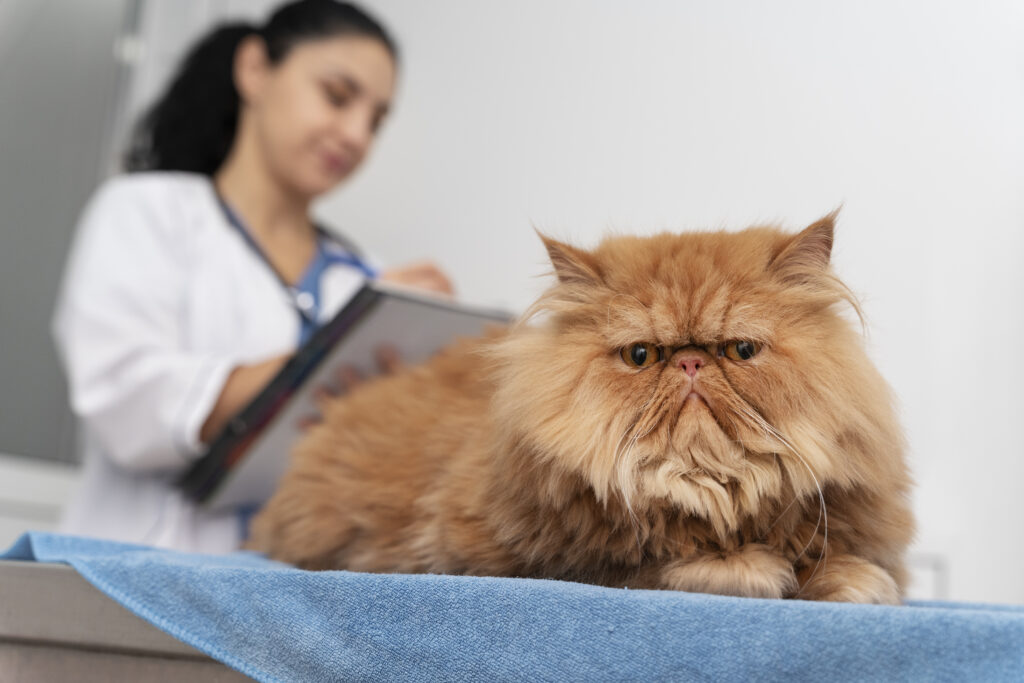Introduction
In the world of feline care, cat neutering remains a topic often shrouded in myths and misconceptions. These myths can lead well-intentioned cat owners astray, affecting crucial decisions regarding their pets’ health and well-being. It’s time to set the record straight, to unveil the truths that have long been obscured by fiction.
Why is addressing these myths important, you ask? Because the decisions we make about cat neutering have a profound impact on our pets and our communities. Separating fact from fiction allows us to make informed choices that safeguard our cats’ health, happiness, and longevity.
In this article, we’ll unveil the truths behind common myths surrounding cat neutering, armed with science, expert insights, and compassion for our beloved feline companions. So, let’s embark on this myth-busting adventure, and together, we’ll empower ourselves as responsible and informed cat owners.
Myth : Neutering Leads to Obesity in Cats
One prevalent myth surrounding cat neutering is the belief that it inevitably leads to obesity. While it’s true that neutered cats may be more prone to weight gain, this myth oversimplifies the issue. Neutering itself doesn’t cause obesity; it’s the result of a combination of factors, including changes in metabolism and behaviour.
Neutering may slow down a cat’s metabolism, which can lead to an increased appetite. Cats may become less active after neutering due to reduced mating and territorial behaviours. Weight gain can occur if caloric intake isn’t adjusted to match these changes.
Monitor food portions and adjust them according to your cat’s age and activity level. Choose high-quality, balanced cat food and avoid overfeeding with table scraps or treats. Encourage regular exercise through interactive play and engaging toys. Consult your veterinarian for tailored advice on your cat’s diet and weight management.
Myth: Neutering Alters a Cat’s Personality
One of the most persistent myths about cat neutering is the idea that it dramatically changes a cat’s behaviour and personality. This myth often instils fear in cat owners, leading them to believe that neutered cats will become unrecognisable in terms of temperament. However, the truth is far less dramatic.
Neutering doesn’t change a cat’s fundamental personality traits, such as being affectionate, playful, or independent. Neutering can reduce certain undesirable behaviours, such as aggression, urine marking, and yowling, particularly in male cats. Cats may become calmer and less driven by mating instincts after neutering.
Neutering often leads to a more harmonious relationship between cats in multi-cat households. It can reduce stress and anxiety associated with mating-related behaviours. In essence, rather than altering a cat’s core personality, neutering can help to alleviate certain behaviours that can be challenging for both cats and their owners, making it a responsible and beneficial choice for many feline companions.
Myth: Neutered Cats Don’t Need Veterinary Care
It’s a common misconception that neutering a cat eliminates the need for regular veterinary care. The belief that spayed or neutered cats require less medical attention can be misleading, as it overlooks essential aspects of feline health.
Neutering alone doesn’t ensure a cat’s ongoing well-being. Regular veterinary check-ups are crucial to monitor overall health. Neutering can have beneficial effects on specific health issues, like reducing the risk of certain cancers and eliminating the possibility of unwanted pregnancies. Cats, whether spayed/neutered or not, require vaccinations, parasite control, dental care, and preventive measures to stay in optimal health.
Routine check-ups allow early detection of health problems, improving treatment outcomes. Vaccinations protect cats from contagious diseases, keeping both them and their human families safe. Dental care and preventive measures can maintain a cat’s oral health and overall well-being. In reality, neutering complements, rather than substitutes for, proper veterinary care.
Myth: Neutering Is Cruel and Painful
There’s a persistent myth that neutering is a cruel and painful procedure for cats. This misconception often deters well-intentioned cat owners from considering this important step in responsible pet care. It’s crucial to separate fact from fiction when it comes to the well-being of our feline companions.
Neutering is a common and routine surgical procedure performed by experienced veterinarians. Cats are placed under anaesthesia during the surgery, ensuring they don’t experience pain or discomfort. Neutering involves the removal of a cat’s reproductive organs: ovaries and uterus for females, testes for males. Cats are placed under general anaesthesia during the surgery, ensuring they are pain-free and unconscious. Surgical incisions are typically small, leading to minimal discomfort post-surgery.
Cats are carefully monitored as they wake from anaesthesia.. In reality, neutering is a safe and routine procedure designed to promote the health and well-being of cats and reduce the risk of unwanted litters.
Myth: Neutering can be done at any age
A persistent myth suggests that cats can be neutered at any stage of their lives with no repercussions. While it’s true that neutering can be performed on older cats, it’s essential to understand that timing matters and ideal scenarios offer benefits for your feline friend.
Neutering can indeed be done on adult cats, including seniors. However, the ideal timing varies between kittens and older cats. For kittens, neutering at around 5 to 6 months of age is often recommended to prevent undesirable behaviours and pregnancies. In older cats, neutering can still be beneficial, particularly for managing certain health issues, but the procedure may be riskier and necessitate more tailored care.
Neutering kittens before sexual maturity helps prevent spraying, roaming, and aggressive behaviours. While it’s never too late to consider neutering, understanding the ideal timing and potential benefits is crucial for making informed decisions, particularly for older cats.
Conclusion: Dispelling the Myths, Embracing the Truth
By debunking cat neutering myths, we empower ourselves as responsible cat owners. While it’s never too late to consider neutering, understanding the ideal timing and potential benefits is crucial for making informed decisions. Let’s base our choices on facts, ensuring the health and well-being of our feline companions.

